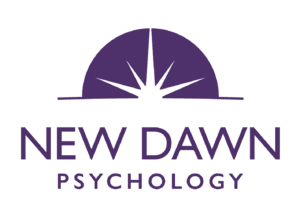Anger Management
Anger suffers from a bad reputation. Regarded as negative and harmful, it is associated with conflict, aggression and violence. In fact, many believe we would be better off without it as an emotion. But, like it or not, anger is a universal experience and an integral part of our emotional landscape. Think about the last time a technology glitch tested your patience, a colleague took credit for your work, or you felt unheard in a conversation. These everyday scenarios all have one thing in common: the potential to trigger anger.

- 30 years of experience and expertise in anger and stress management.
- A unique psycho-educational programme tailored to your situation, providing fresh and new perspectives.
- Private, safe, and uninterrupted time just for you.

Anger, our fight response, evolved from our primitive need to survive and to protect ourselves when we are threatened or attacked. On a day-to-day basis, anger serves as an internal guidance system that indicates something is not quite right, that someone has treated us unjustly or unfairly. It helps us to feel in charge so we can protect what is ours by motivating us to stand up for ourselves and creatively find solutions to the challenges we face. It empowers us to focus on our ability to change the situation, to take action and move from an undesirable position to a desirable one. It makes us aware of our deep-seated beliefs and what we stand for. Anger is designed to rebalance the situation and increase our value. When we strongly assert our position and bargain to our advantage, it causes others to rethink their position against ours, encouraging cooperation.
Anger is, at its core, an emotion that signals that something is not aligned with our values or expectations. Importantly, anger doesn’t inherently require conflict, aggression, or violence. These outcomes are determined by how we choose to express and manage our anger. With the right understanding and skills, anger can be channelled into assertive communication, problem-solving, and personal growth, leading to healthier relationships and positive outcomes. As Aristotle said, we have to be angry “with the right person and to the right degree and at the right time and for the right purpose, and in the right way.” This is not easy.


Unresolved anger is like a slow-burning fire within us.
It heightens our stress levels causing our blood pressure to surge. Over time, this consistent pressure on our cardiovascular system increases the risk of heart-related issues such as high blood pressure and heart attacks. The impact doesn’t stop there; our relationships can suffer immensely. Unresolved anger builds resentments which create an emotional barrier between us and our loved ones, a far cry from the open communication, understanding, and empathy we once had. Isolated in our frustration, we hit a roadblock. Trapped in the clutches of frustration, the road ahead seems impassable, and the potential for growth is stifled.
Anger is not caused by someone else’s words or actions or a situation, but rather our interpretation of them. Our interpretation is determined by the lens through which we view the world. By reflecting upon how our life experiences have shaped this lens, we can gain a more in depth understanding of how we came to view our world in the way we have. In doing so, we can identify potential biases or distorted perceptions, and work towards adjusting our lens to see situations from a more objective and balanced standpoint. In this way, we can not only change the way we feel but also the way we respond.


This is where New Dawn Psychology’s psycho-educational programme will help.
Whether you have chronic anger issues, difficulties managing your anger, or struggle to express your anger and are conflict-averse, this programme is a guiding light towards healthier ways of understanding, expressing, and managing your emotions. Trained by the British Association of Anger Management, Dr Dawn empowers you with the tools to navigate the complex landscape of anger and improve your self-awareness, emotional control and communication skills.
Consider these scenarios:
A friend cancels plans at the last minute.
Old behaviour:
Naturally disappointed, you immediately think your friend hasn’t prioritised the plans you made together in the same way that you have, and you start to feel resentful. Fearful that telling your friend how you really feel will result in an argument, you keep your distance for a while until your negative feelings subside.
New behaviour:
You can recognise this negative thought pattern, challenge your automatic assumptions and consider alternative explanations. You speak to your friend to understand the reasons behind the cancellation and make arrangements to get together another time.
This change in approach not only prevents unnecessary conflicts but also fosters more understanding relationships.
You're stuck in traffic, late for a very important meeting.
Old behaviour:
You struggle to fight the urge to beep your horn or make a dangerous manoeuvre as your frustration grows. Tailgating the car in front, you run the red light when you reach the temporary traffic lights in an attempt to save time. You speed as much as you can for the rest of the journey, overtaking recklessly as you resolve to beat the clock. On arrival, you park and rush into the meeting, heart and mind still racing.
New behaviour:
You recognise that wanting to beep the horn or make a dangerous manoeuvre signal that you are feeling angry. You tune into your body's physiological cues and recognise that your jaws are clenched, your shoulders are tense, your heart rate has increased and you’re feeling hot. Armed with strategies to calm yourself down before your anger escalates any further, you can now take a moment to acknowledge why this situation triggered your anger. No longer sabotaged by your anger, you focus on remaining calm for the meeting and maintaining your professionalism. On arrival, you park and join the meeting with composure, ready to deal with the matters at hand.
This change in approach means that the challenge of the traffic jam stays where it belongs – on the road – and does not spill into the professional environment you are about to engage in.
You receive critical feedback about something you've invested a lot of time working on.
Old behaviour:
You feel disrespected and unappreciated by the feedback and shut down the conversation unwilling to discuss it any further.
New behaviour:
You can pinpoint the mix of emotions you’re experiencing – maybe it's a blend of disappointment, pride, and insecurity. By acknowledging these feelings, you are able to express them in relation to your efforts whilst acknowledging the feedback giver’s point of view.
This shift in your approach allows for a balanced exchange where both parties feel heard and respected.
A family conflict.
Old behaviour:
You either suppress your views and avoid confrontation or air your opinions in the face of heated disagreements. Either way, you are left harbouring frustration and anger at being unheard and overlooked and find yourself in the aftermath of strained relationships.
New behaviour:
You can now choose a third path – a middle ground – which allows you to practise your improved communication skills and express your viewpoint in an assertive yet respectful manner. This not only ensures your voice is heard but also de-escalates the tension.
This new approach has the potential to improve understanding and promote healthier relationships.
